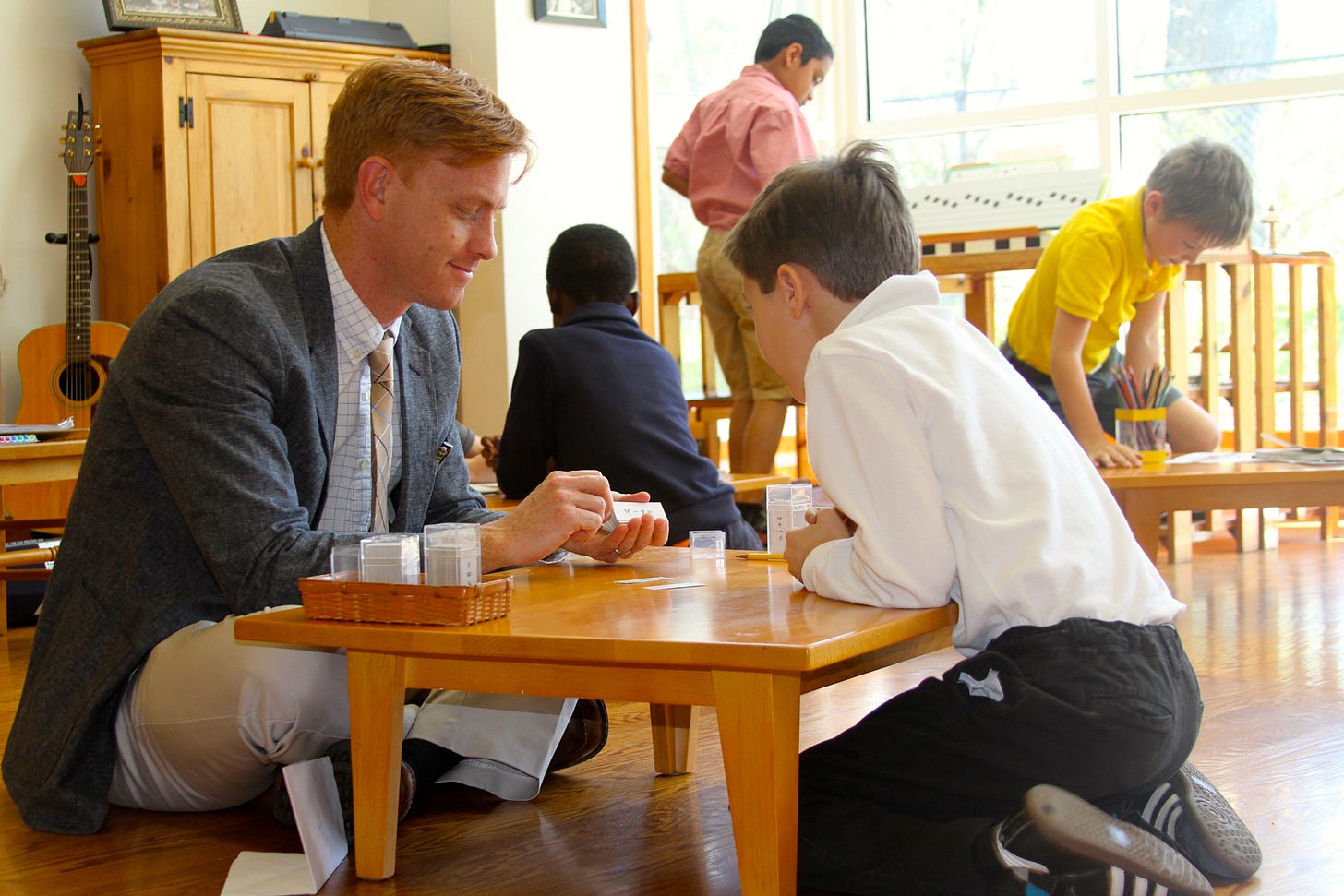What Makes Children Improve?
The Way To Help Children with Their Struggles May Not be What You Think
A young mother sits across from me at a parent-teacher conference. After hearing me say that her nine-year-old daughter is doing beautifully in my class––writing pages and pages of research and long, creative stories with interesting plot lines and characters, excelling in mathematics, memorizing poems she loves, all the countries of Europe and their capital city names, and getting along with her peers who adore her for her kindness and sense of fun––after all this, the mother says,
“Yes, but her spelling is atrocious! I’m so worried about it I can hardly sleep. Maybe we need to switch her to the kind of school where those things are drilled in. Or maybe a tutor?”
I am a parent myself, so I know well the temptation to focus on your own child’s one weakness as if it is something to be “fixed.” Think about it: this is what we do to ourselves, too! And why? Where did we get this tendency?
I know exactly where we got it: it results from the perfect combination of a conventional schooling system that focused on flaws to be remedied and comparisons with peers as the main avenue for evaluating performance, (as if every human should––or could––excel in every topic!) AND…the natural drive to perfect ourselves that every human being is born with, which drives us to better ourselves. It comes from a belief system that learning is to be forced on us by others, rather than coming from a drive to learn from within.
This seductive combination is so prevalent in our culture that I admit I have caught myself doing this “focus on that one sub-par attribute” at times. In myself, and in my children. Ouch!
There’s a much better path to success: Maria Montessori’s gift to us has been to point out that human beings––children especially––already have an inner teacher driving them to improve themselves. Children want more than anything to be the best they can be at everything they do. Of course they do! That’s natural, and it occurs without external prodding.
A student asks his teacher to help him practice his math facts so he can get better!
If we adults recognize this tendency to improve oneself is already doing the important work, we see that we don’t have to add on to this pressure. Instead, our role is to guide and encourage our children in their efforts to improve. Most importantly, children need us to champion their strengths and the areas where they excel. This feeds their momentum to keep at it.
In my teaching career and as a fellow parent, I have watched parents get overly focused on that one area their child lags behind others in, or where they think their child is not good enough. There’s always that One Thing, (or maybe a whole set of things!), that makes us afraid our child will not succeed in life. It could be reading, spelling, math facts, reading social cues, sitting still, athletics… And yet, if we believe that people lead with their strengths––if we really believe it––then we can go ahead and replace fear with conviction that our children CAN and will overcome their struggles while building their strengths to lead them through.
Montessori helps us to do this; it gives us a classroom framework where children can work through many of life’s struggles by their own powers, so that they are empowered––by the setup of the environment, the dynamic with the teacher, and the balance of freedoms and responsibilities given––to teach themselves. Montessori students get to be active agents in their learning. The special materials give students feedback that guides them through their learning processes. This sets the stage for our children to challenge themselves in positive ways. Montessori’s approach gives children an appetite for embracing challenge and a way to enjoy learning new things––even hard things––for life.
I recently visited with a mother whose 3 children attended Forest Bluff through the 8th grade. These alumni are now in their late twenties. They work for tech companies, creating new software and cyber security products, and one is a photography editor and an artist. They are every definition of “success”. If you met these adults, you might be surprised to hear that all 3 had challenges when they were young students. I taught two of those children in lower elementary, and I can attest to their individual struggles with writing, memory, organization, and focus. Montessori, this mother believes, enabled her children to grow through those challenges and ultimately, thrive. I agree!
Success stories like these are common with people who attended Montessori through 8th grade and whose parents embraced the approach. Why? Because children can get so much of what they need from a thorough Montessori education and from their parents’ positive attitudes at home. This inspiring, repeatable trajectory shows us that children teach themselves in Montessori environments and develop strengths into their adult lives in ways that no one else can do FOR them.
The truth is that no one has no struggles! In this, none of us are truly alone in life. We have a shared experience. This is a message we want our children to be familiar with and comfortable with. One Montessori graduate I know tells me that in high school, he could tell which peers had attended Montessori and which had attended conventional schools by how they either tackled, or avoided, the areas they needed to improve in…Guess who continued to enjoy challenging learning?
In life, let’s borrow from Montessori, and cheer each other on with respect to do our own improving. Focus on your strengths. Focus on your child’s strengths. That’s the path to success!
(For more true examples of where I’ve seen this work in action, please see my book, THE MONTESSORI POTENTIAL, released in 2023.)






So true! Thank you for sharing, Paula!